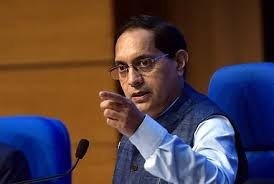In a sweeping move against online financial misinformation, India’s market regulator, the Securities and Exchange Board of India (SEBI), has flagged and removed over 1 lakh misleading messages and posts across social media platforms as part of its ongoing “Sebi versus Scam” initiative.
Speaking at the CNBC-TV18 Global Leadership Summit, SEBI Chair Tuhin Kanta Pandey described the effort as part of a broader campaign to protect investors from fake trading apps, cloned websites, and unregistered advisors that prey on the public’s growing interest in stock markets.
“Unregulated financial influencers have emerged as a major risk,” Pandey cautioned. A recent SEBI survey revealed that 62% of investors rely on influencer recommendations when making investment decisions — a trend he said could distort public perception and erode trust in regulated market structures.
Cracking Down on Digital Financial Fraud
Under the “Sebi versus Scam” program, the regulator has stepped up real-time surveillance of social media and digital platforms. Misleading and deceptive investment content is being flagged for takedown requests, while stock exchanges have been directed to publish “whitelists” of verified brokerage and trading apps to counter the spread of fraudulent platforms.
SEBI has also introduced new investor verification tools such as Valid UPI and Sebi Check, which allow users to authenticate QR codes and bank details associated with registered market intermediaries — key safeguards against cyber-enabled financial fraud.
Pandey said the initiative was not just punitive but educational: “Investor protection begins with investor education,” he emphasized, adding that awareness campaigns are being redesigned to reach younger and first-time investors who are most vulnerable to digital scams.
Bridging India’s Financial Awareness Gap
SEBI’s latest nationwide investor survey paints a revealing picture of India’s investment landscape. While 22% of financially aware non-investors plan to enter the markets within a year, only 36% of existing investors report having moderate or high market knowledge. Urban participation stands at 15%, compared with just 6% in rural areas.
Despite the growing digital reach of financial platforms, 37% of respondents remain unfamiliar with securities products, and 27% of non-investors admit they don’t know how to begin investing.
“The challenge is not just awareness but participation,” Pandey noted. “We need to build trust among potential investors who remain hesitant due to perceived complexity and risk.”
To address this, SEBI plans to expand its outreach through regional-language campaigns, digital media content, and in-person workshops across India.
Building a Safer, Smarter Investment Ecosystem
Experts say SEBI’s latest actions mark a decisive step toward regulating India’s rapidly evolving “finfluencer economy”, which has become a potent but often misleading force in retail investing.
By combining surveillance, education, and platform accountability, the regulator aims to reshape the digital financial ecosystem into one that balances innovation with investor safety.
As Pandey summarized at the summit, “Trust in markets begins with truth in information — and we intend to ensure that.”


